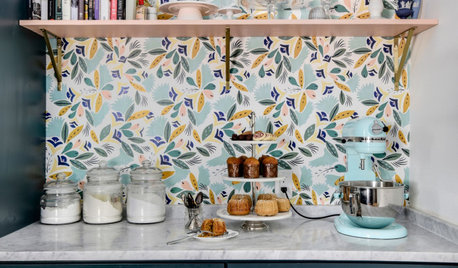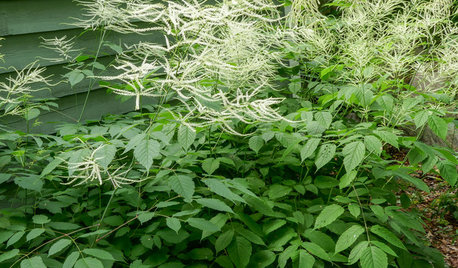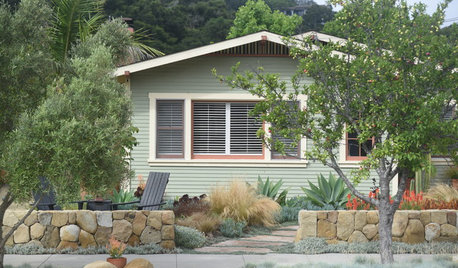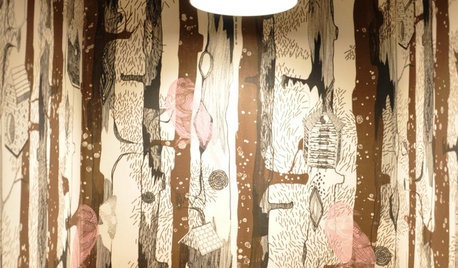black spot
tyndall
17 years ago
Related Stories

BATHROOM DESIGNSpotted: Refrigerators in the Bathroom
You read that right. Before you protest, here are seven good reasons why people are chilling in the bath
Full Story
HOUSEKEEPINGOut, Darn Spot! Tips for Removing Carpet Stains
Know the right solutions and when to use them to prevent stains from pets, soda, chocolate, blood and more
Full Story
KITCHEN DESIGN12 Items Worth a Spot on Your Kitchen Counter
Keep these useful tools and accessories out in the open to maintain high function without spoiling the view
Full Story
HOUZZ TOURSMy Houzz: Color Hits the Spot in a White-on-White Scheme
Bright red furniture strikes a dramatic pose against snowy walls and floors in a Montreal loft
Full Story
FLOWERS AND PLANTSAruncus Dioicus Is a Stately Plant for Shady, Moist Garden Spots
Plant goat’s beard in perennial and woodland gardens. Its large white spring blooms attract bees, beetles and butterflies
Full Story
HOLIDAYS12 Home Hot Spots for Holiday Decorating
Deck these areas with garlands, lights and other seasonal decorations, and watch a festive mood take hold
Full Story
LANDSCAPE DESIGNHow and What to Plant in Dry, Sunny Spots
Save water and improve your site’s look with these design tips and help from a pro
Full Story
DECORATING GUIDESCool Wallpaper Spotted: Wait, No It's Fabric!
Woodsy-modern pattern adds whimsy and color to a baby-friendly bathroom
Full Story
COLORGet a Soft Spot for Sea-Glass Green
Soften a room's look by washing its walls in this delightfully airy shade, no sand in your shoes required
Full Story






nancyofnc
tyndallOriginal Author
Related Professionals
San Juan Landscape Architects & Landscape Designers · Norwood Landscape Contractors · Berkeley Heights Landscape Contractors · Clayton Landscape Contractors · Dedham Landscape Contractors · Gainesville Landscape Contractors · Mason Landscape Contractors · Melrose Park Landscape Contractors · Mequon Landscape Contractors · Sammamish Landscape Contractors · Spring Landscape Contractors · Suitland Landscape Contractors · Tuscaloosa Landscape Contractors · Wentzville Landscape Contractors · Four Corners Landscape Contractorsjqpublic
violet312s
hbwright
dirtysc8
columbiasc
tyndallOriginal Author
brenda_near_eno
hbwright
nancyofnc
hbwright
brenda_near_eno
crop_duster
shari1332